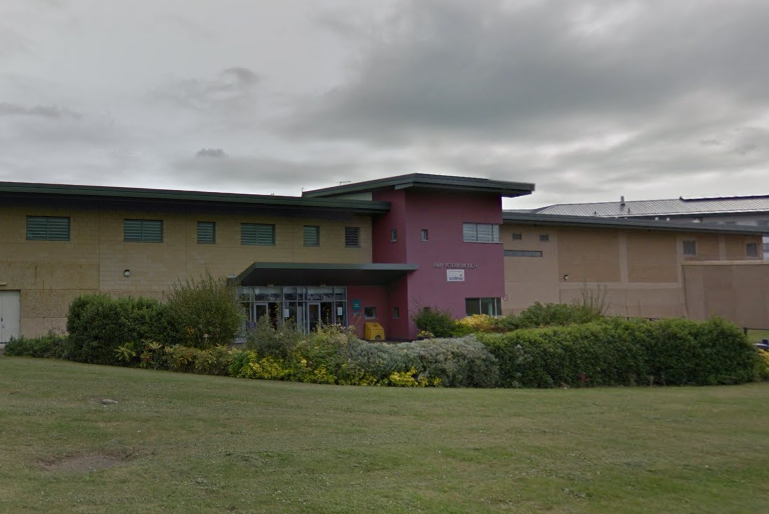Female prison inmates subject to 'excessive strip-searching' despite many being victims of sexual abuse

Female prisoners are being subject to “excessive strip-searching” despite evidence that the process can risk retraumatising vulnerable women, many of whom will have experienced sexual or physical abuse.
An inspection of HMP Peterborough – the only jail in England and Wales that holds both women and men on a single site – found “very high” use of force by staff and “overuse” of strip-searching, which campaigners have described as “shameful”.
It comes just days after the Government was issued with an unprecedented warning that inmates were being driven to take their own lives due to a “dramatic decline” in conditions.
Inspectors revealed last week that conditions in one English jail were the “worst they have ever seen”, painting a grim picture of inmates in HMP Liverpool living among dirt, litter, rats and cockroaches and occupying cells that are “dangerous to live in”.
The latest report from the Inspectorate of Prisons raises further concerns about the prison state, highlighting how the “instability on the male side was affecting the prison’s ability to focus sufficiently on the relatively more settled female prison”.
It states the use of strip-searching was too high, which the Chief Inspector Peter Clarke said was “particularly disappointing” given the heavy investment in training staff about how past trauma can be reignited in the prison setting.
Use of force was also too high, at more than double the level usually see in women’s prisons, with inspectors witnessing examples where not every opportunity to de-escalate the situation had been used, the report found.
The inspectors found that over a nine-week period, 70 women were strip-searched –“far more” than the levels usually seen in a women’s prison. They said reasons for these searches were often “unclear”, with staff in reception unable to provide consistent explanations of their rationale for undertaking them.
Figures show 57 per cent of women in prison in England and Wales have been victims of domestic violence, while 53 per cent have experienced emotional, physical or sexual abuse as a child, with female inmates often victims of much more serious offences than the ones for which they have been convicted.
Peterborough held 360 women from the age of 18, but as it is a resettlement prison, most women only stayed for a few weeks. On arrival, 65 per cent of female inmates said they felt depressed, more than a quarter said they felt suicidal and two-thirds had mental health problems, inspectors said.
The report found that 60 per cent of women had felt unsafe at some time since arriving and 28 per cent felt unsafe at the time of the inspection. The proportion of women who said they have been victimised by prisoners or staff had risen, with verbal bullying and antisocial behaviour being the main reasons for this.
Concluding the findings, Mr Clarke said: “This is a more mixed report than when we last inspected this prison. We were particularly concerned about safety, and this is the first women’s prison in several years to have been assessed as ‘not sufficiently good’ in this area.
“The prison remained basically respectful, but serious deficits in health care meant that the assessment in this area was not as positive as at our previous visit.”
He added that while outcomes in purposeful activity had improved and resettlement remained strong, “a renewed focus on the female prison” was now needed to ensure the concerns the inspectors had raised were addressed.
Jenny Earle, who leads the Prison Reform Trust’s Transforming Lives programme to reduce women’s imprisonment, said: “Strip searching is a known risk for retraumatising vulnerable women, many of whom will have experienced sexual or physical abuse. Yet the inspectorate found numerous examples where its use was entirely unwarranted.
“Peterborough’s policy of routine strip searching should be revised as a matter of urgency, and the prison brought into line with existing good policy and practice for working with vulnerable women in prison.”
Andrew Neilson, director of campaigns at the Howard League for Penal Reform, said the report’s findings were evidence that the problems in the “failing” prison system were “spreading”.
He added: “The chaos in men’s prisons is becoming clearer by the day, but today’s inspection report is the first in years to find that a woman’s jail is not safe enough.
“It is shameful that the challenges in the men’s prison at Peterborough have become so overwhelming that women on the site are receiving less support. As most women only stay in Peterborough for a few weeks, this report should prompt ministers to question why we send them there at all.
“Bold but sensible action is needed. Putting less strain on the system by reducing the prison population would prevent more people being swept into deeper currents of crime and despair.”
Michael Spurr, chief executive of Her Majesty’s Prison and Probation Service, said: “Sodexo [Justice Services, which provides custodial and post-release facilities for the Home Office] has responded swiftly and positively to the Chief Inspector’s report.
“There is a renewed focus on the specific needs of the women, and a dedicated operational manager has been appointed to drive safety improvements.
“The positive outcomes for Purposeful Activity and Resettlement demonstrate that high-quality work continues to be delivered at Peterborough and we will work closely with Sodexo to ensure the weaknesses identified in the Chief Inspector’s report are addressed.”

 Yahoo News
Yahoo News 
